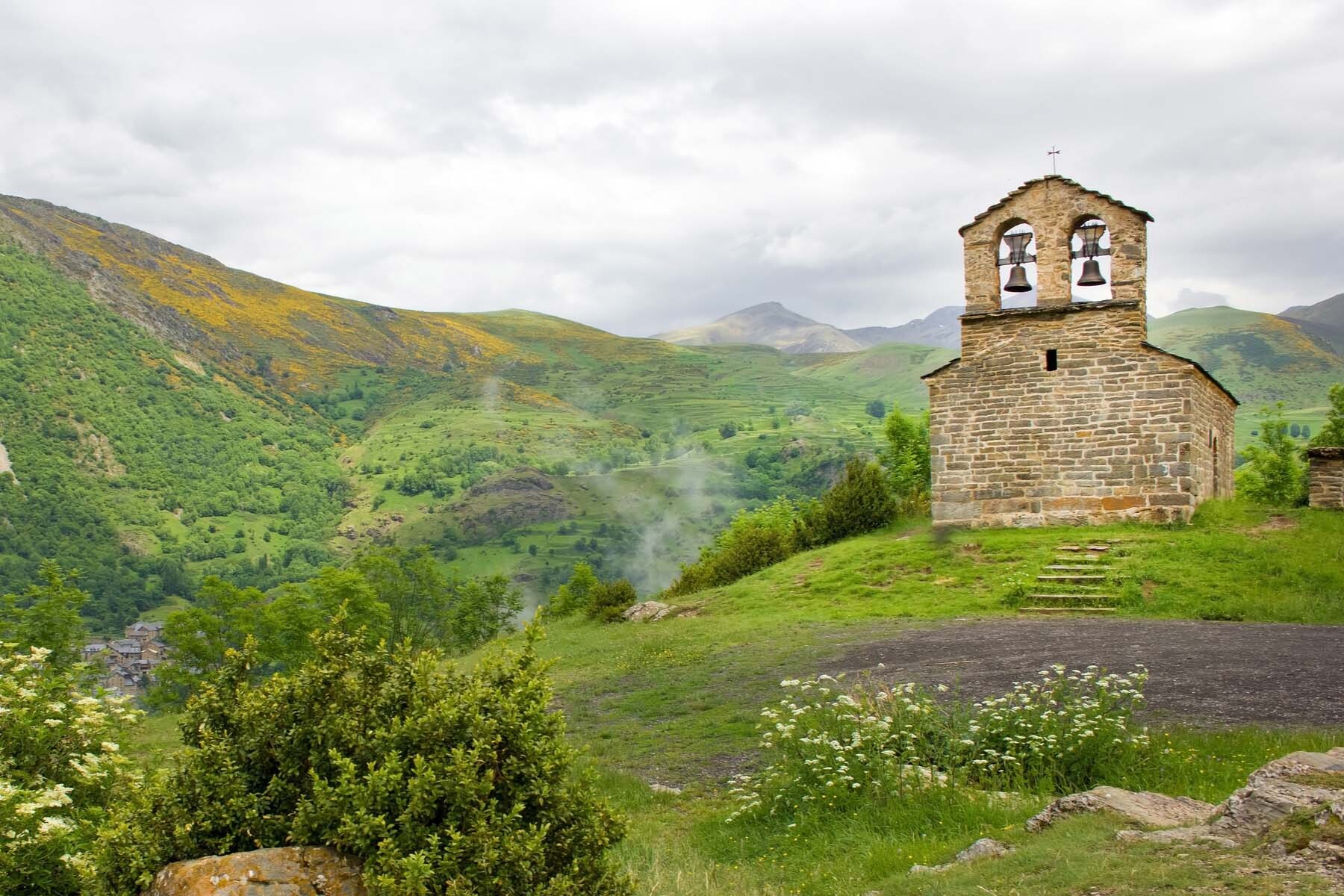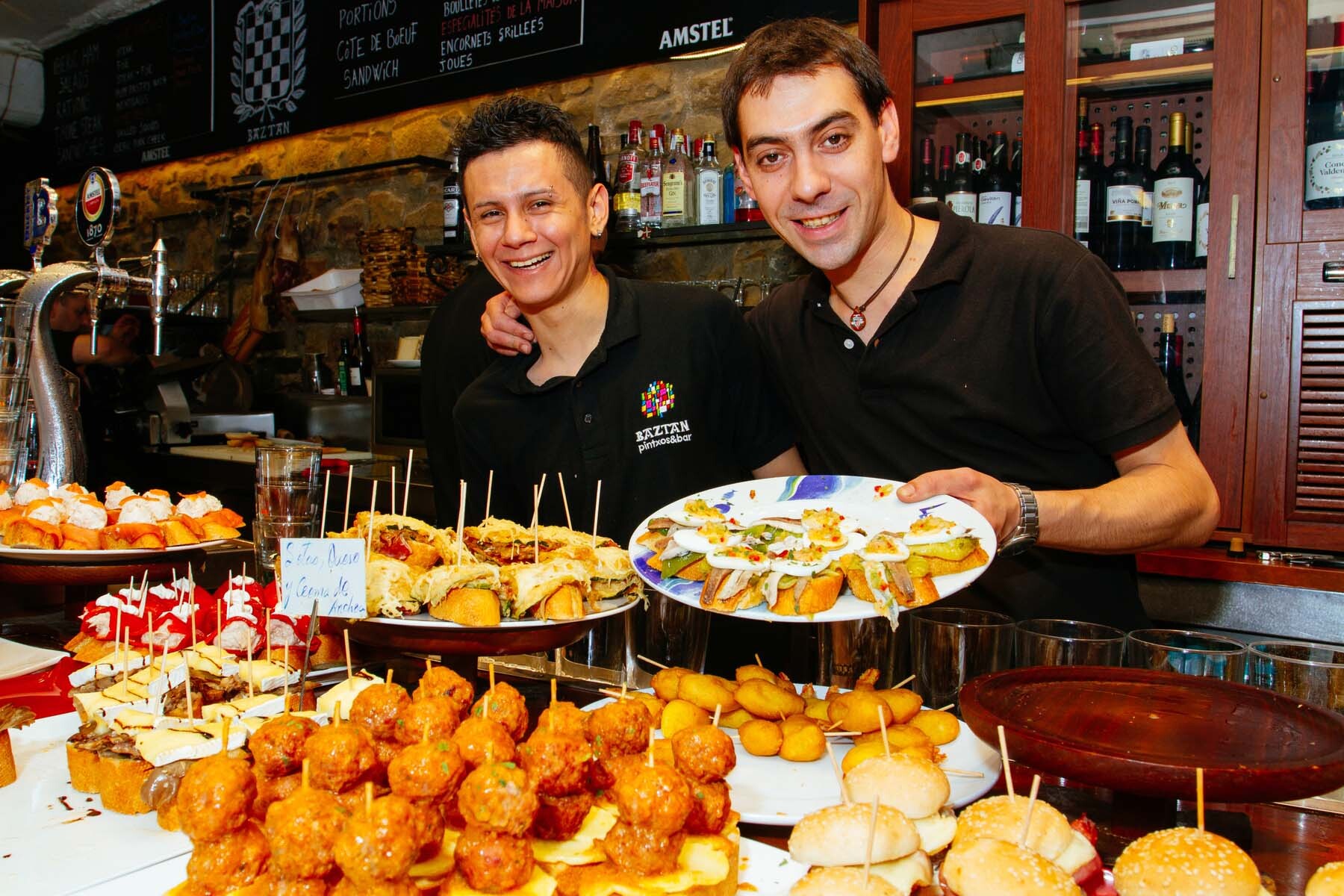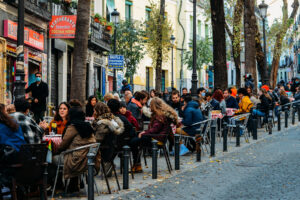How much do you know about Spain? If you’re moving to the country, it’s a good idea to learn a little more about your new home. To help you out, we’ve put together a list of our favorite facts about Spain that you might not know. From legal nudity to magical mice, and everything in between, here are 30 informative and interesting truths that might just surprise you.
- 1. The EU’s second-largest country
- 2. Once a number of separate kingdoms
- 3. Home of the world’s second-most widely spoken language
- 4. Nudity is legal in Spain
- 5. Has the fifth-largest population in Europe
- 6. Spanish people live longer…
- 7. … which means an aging population
- 8. It’s not quite as religious as you think
- 9. Spain is a constitutional monarchy
- 10. There aren’t many tax inspectors
- 11. Europe’s second-highest unemployment rate
- 12. It’s a good place for female entrepreneurs
- 13. Hold the paella
- 14. Childcare can be limited
- 15. It has below-average high school qualifications
- 16. The Spanish love to chill out
- 17. The first novel was written in Spanish
- 18. Boasts 47 UNESCO World Heritage Sites
- 19. A staple of Spanish culture
- 20. It’s perfect for olive oil lovers
- 21. The winds of change
- 22. 150,000 tomatoes are thrown every year…
- 23. There’s no tooth fairy in Spain
- 24. The Spanish are a tolerant society
- 25. Home to the world’s oldest restaurant
- 26. One of the world’s most popular tourist destinations
- 27. The perfect place to let your hair down
- 28. The best Christmas present ever?
- 29. A giant of world football
- 30. Spain has an artistic streak
Babbel
Want to talk in Toledo? Or have a conversation in Cordoba? Get more from your Spanish adventure with the language-learning app, Babbel. Their range of professionally-made Spanish language courses will have you talking like a local in no time. Download Babbel today and start your Spanish journey!
1. The EU’s second-largest country
Spain – or the Kingdom of Spain, to give the country its official title – is the second-largest country in the European Union after France. It measures up at around 506,000 square kilometers if you include the Canary Islands and the Spanish territories along the North African coastline.
2. Once a number of separate kingdoms
Like many other European countries, what we know as modern-day Spain was once a collection of individual kingdoms. That changed in the 15th century when Fernando of Aragon and Isabel of Castile married and united their respective kingdoms. And if you thought learning one new language was hard enough, most of these kingdoms had their own language, too!
3. Home of the world’s second-most widely spoken language
There are an estimated 440 million native Spanish speakers around the world, second only to Mandarin. But while Spanish is the official language of Spain, the regional languages of Catalan, Basque (Euskara), and Galician (Galego) all have official status in their respective regions.

If you’re keen to learn Spanish (or Catalan!), it’s worth checking out the following online services and apps:
4. Nudity is legal in Spain
With its Mediterranean climate of hot, dry summers and mild, wet winters, you might be tempted to strip off while in Spain. With 3,000 hours of sunshine a year, there are also few better places to top up your tan. And any budding naturists out there will be pleased to know nudity is legal in Spain, although it’s considered inappropriate in plenty of places.
5. Has the fifth-largest population in Europe
Spain is home to 47 million people, and while you might think that sounds crowded, in reality, three-quarters of the population live in urban areas. Around 6.5 million, for instance, live in the Madrid metropolitan area, while 5.5 million reside in the Barcelona metropolitan area. This means both cities have larger populations than New Zealand.
6. Spanish people live longer…
According to stats, Spain has the second-highest life expectancy of all the OECD countries at an impressive 83 years. Only the Japanese have a higher life expectancy. Figures show that Spanish women are outliving their male counterparts: 85 years compared to 79 years for men.
7. … which means an aging population
By 2050, the United Nations projects that Spain will have one of the oldest populations in the world. It estimates that in just thirty years, over 30% of the population will be aged 60 and above.
8. It’s not quite as religious as you think
Despite the importance of religion in Spanish culture, apparently only 13.6% of Spain’s population actually goes to church every Sunday. That said, some 70% of the locals still identify as Roman Catholic according to a 2012 study by the Center for Sociological Studies in Spain.

9. Spain is a constitutional monarchy
Following the death of the right-wing dictator, General Franco, back in 1975, King Juan Carlos I returned to the throne. Once one of Europe’s most popular monarchs, Juan Carlos fell from grace following a string of scandals. He abdicated in favor of his son, Felipe VI, in 2014.
10. There aren’t many tax inspectors
According to official figures, in Spain, there’s one tax inspector for every 1,928 taxpayers. For comparison, over the border in France, there’s one inspector for every 729 residents. This may explain why the Spanish tax authorities estimate a quarter of Spain’s GDP comes from the black market.
11. Europe’s second-highest unemployment rate
Statistics from 2019 show that Spain had the second-highest unemployment rate in the EU, behind only Greece. However, the current rate of 13.8% is a significant improvement from the 24.2% unemployment rate Spain experienced back in 2015.
12. It’s a good place for female entrepreneurs
During the five years following the beginning of the Global Financial Crisis in 2008, female entrepreneurs set up 40% of all new businesses in Spain. This totaled some 800,000 businesses and was a significant boost to the economy.
13. Hold the paella
Now here’s a surprising fact about Spain. Although many foreigners see paella as the Spanish national dish, many Spaniards don’t. That’s because most locals see the colorful rice dish as a Valencian dish, not a national one. Find out how to cook paella, among other Spanish delicacies, with our guide to Spanish food.

14. Childcare can be limited
As local parents know all too well, the amount of out-of-school-hours childcare in Spain is limited. That’s why about a quarter of all grandparents take care of their grandchildren on a daily basis, looking after them once the local schools let out.
15. It has below-average high school qualifications
According to official stats, around half of all adults up to the age of 64 have the equivalent of a high school diploma, well below the OECD average of almost 75%. However, younger generations are bucking the trend, with 65% of millennials gaining the qualification – and the number is growing.
16. The Spanish love to chill out
It won’t come as much of a surprise that the Spanish enjoy taking things a little easier than other nationalities. In fact, according to an OECD report published back in 2013, the average Spaniard devotes 16 out of the 24 hours every day to leisure, including eating, drinking, and sleeping.
17. The first novel was written in Spanish
Back in 1605, Miguel de Cervantes wrote Don Quixote, widely considered to be the world’s first modern novel. The seminal book is seen as one of the most important pieces of Spanish literature ever written and is a founding work of Western literature.
18. Boasts 47 UNESCO World Heritage Sites
As of July 2019, Spain is home to a whopping 47 UNESCO World Heritage Sites, the third-highest in the world. These include historic cities, monumental churches, and more. Only Italy and China have more UNESCO World Heritage Sites – both have 55.
19. A staple of Spanish culture
Okay, so it might not be the first thing you think about when you picture Spain, but the humble stapler is a Spanish invention. It was created in the Basque Country back in the 18th century for the then French king, Louis XV. Spain has also given the world the mop and bucket, and the spacesuit.
20. It’s perfect for olive oil lovers
You’d be forgiven for thinking Greece or Italy produced most of the world’s olive oil, but in actual fact, it’s Spain that leads the way. The Iberian country produces some 1.5 million tonnes of the stuff, the vast majority of which comes from the southern region of Andalusia.

21. The winds of change
Spain leads the way when it comes to renewable energy. In fact, it was the first country in the world to have wind as the greatest source of its electricity. Back in 2013, wind turbines generated just under 54,000 gigawatt hours of electricity – a fifth of the nation’s usage.
22. 150,000 tomatoes are thrown every year…
… at the legendary La Tomatina festival. Held every August, the festival sees revelers from around the world descend on the small town of Buñol, near Valencia. Visitors are encouraged to throw as many tomatoes as they can – but only once they been squashed, to avoid any injuries.

23. There’s no tooth fairy in Spain
But don’t worry – those teeth don’t get wasted! Instead of the famous tooth fairy, when Spanish kids lose a tooth they put it under their pillow for a magical mouse called Ratoncito Pérez. Just like the tooth fairy, little Pérez collects the tooth and leaves money or a small gift in its place.
24. The Spanish are a tolerant society
Back in 2010, the European Social Survey found that 80% of respondents agreed that gay men and lesbians should be free to live their own lives. This compares to less than 40% of Croatians, Lithuanians, and Russians. Spain has a large LGBT community, and same-sex marriage has been legal since 2005.
25. Home to the world’s oldest restaurant
Feeling peckish in Madrid? Well, you might want to check out Restaurante Botín, which the team at the Guinness World Records has awarded the title of the world’s oldest restaurant. The eatery has been serving up its delicious signature dish of Cochinillos asado (roast suckling pig) since 1725.
26. One of the world’s most popular tourist destinations
Historic palaces? Sweeping beaches? World-class mountain trekking? Whatever you’re looking for, Spain has it in abundance. And that’s why the visitors keep coming. In fact, in 2018, Spain was the second most popular global tourist destination – after France – welcoming a staggering 82.8 million visitors.
27. The perfect place to let your hair down
Spain is a country full of festivals. As well as La Tomatina, the country has a wide range of kooky Spanish festivals to check out. You can be chased by bulls during the festivals of San Fermin, watch huge ninots (statues) get burnt during Las Fallas, or soak up some history at Romería de Nuesra Señora de le Cabeza. There’s never a dull moment in this sunny country!

28. The best Christmas present ever?
Fancy becoming rich this Christmas? Well, in Spain, that might just happen. Held just before Christmas in Spain, the country’s national lottery, El Gordo (the fat one), had a total prize fund of €2.24 billion in December 2019. That makes it the world’s largest total prize fund for any lottery.
29. A giant of world football
When it comes to the beautiful game, the Spanish know how to play ball. La Roja topped FIFA’s world rankings for over 5 years between 2008 and 2013. During that time, they won the 2010 World Cup and the European championships in both 2008 and 2012.
30. Spain has an artistic streak
Over the centuries, Spain has produced some of the world’s greatest artists. From Diego Velázquez in the 17th century all the way through to Pablo Picasso and Salvador Dali in the 20th century, the country definitely has a habit of giving the world great artists.










